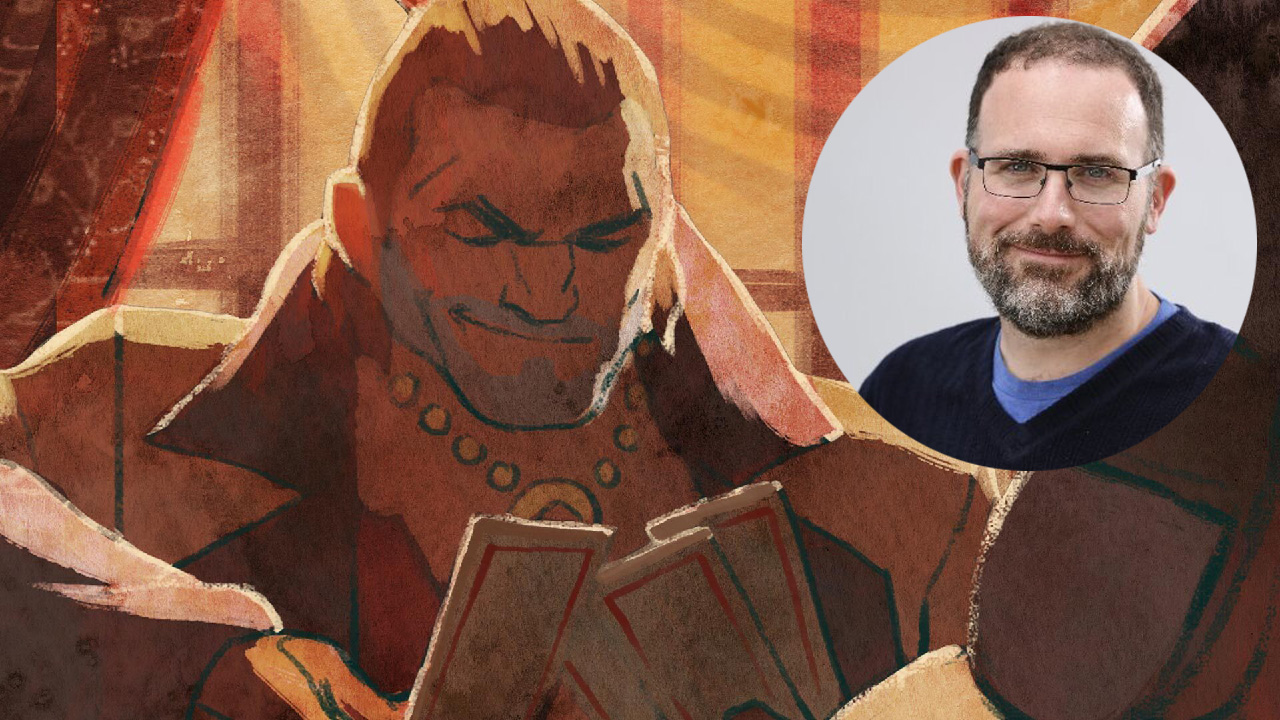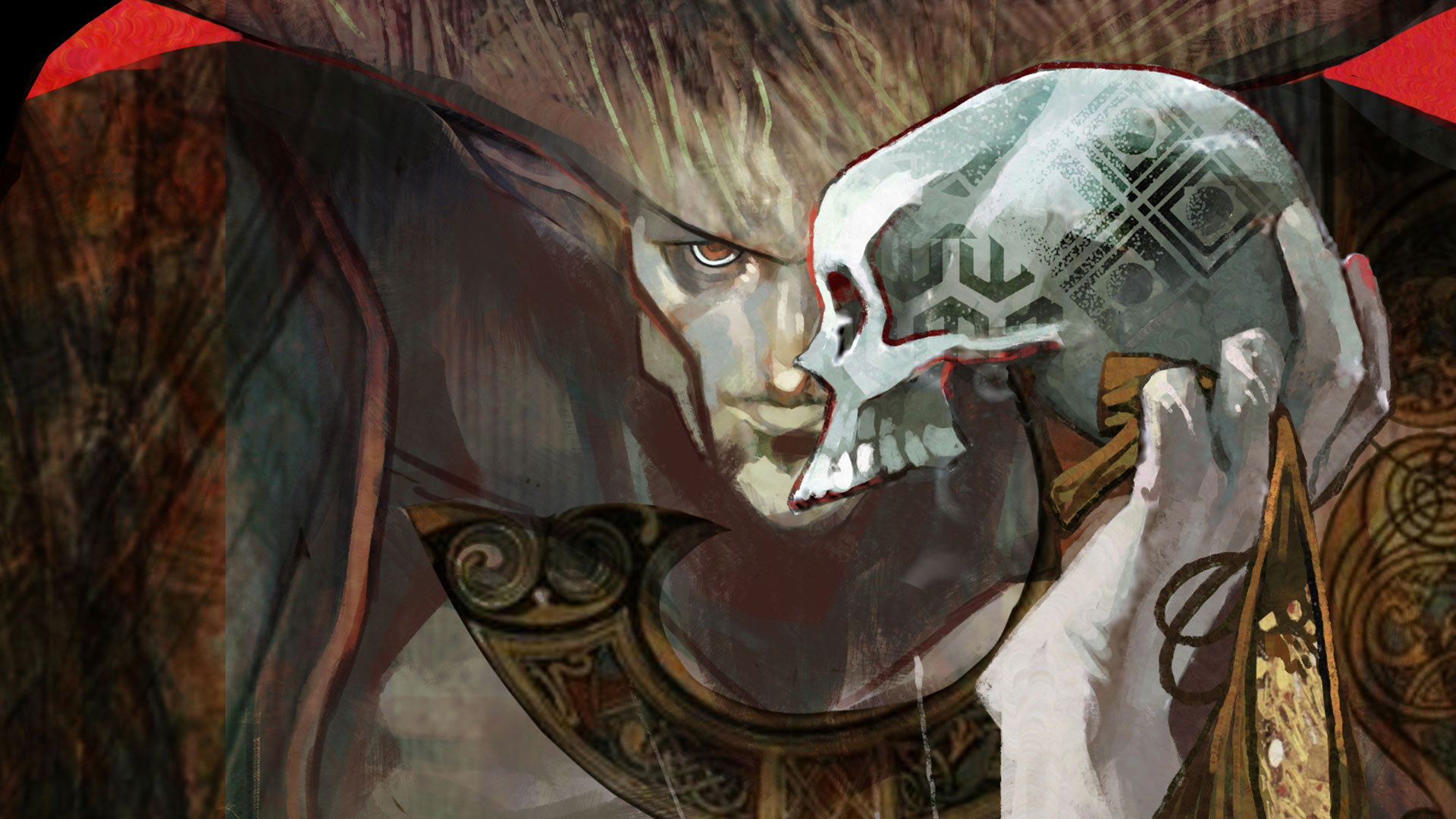Mike Laidlaw explains how the Dragon Age writers' room tackled companions
There was some shouting involved.

Companions are a defining feature of BioWare's RPGs. The band of NPC followers who join your party in games like Baldur's Gate and Dragon Age weren't just a collection of yes-elves who quietly went along with every decision you made. They pushed back and disagreed, and would sometimes leave to go do their own thing. Each of those companions had a distinct personality and voice. That's why there's still no better argument-starter among BioWare's players than asking who the best and worst BioWare companions are. (Jacob defense squad, represent.)
And so, when a group of veteran RPG designers came together for a recent GDC roundtable hosted by PC Gamer, the question of how the writers managed their casts came up. Obsidian's Josh Sawyer took the opportunity to ask Mike Laidlaw, "At BioWare, was there a standard method for the development of the cast of companions and individual companions?"
Laidlaw was former creative director of the Dragon Age series, as well as being lead writer on Jade Empire and a designer on the first Mass Effect. But it's Dragon Age he knows most intimately, and so he answered by explaining how the writers room worked across the three Dragon Age games he worked on—dividing companions between them and collaborating when those characters interacted.
"We were firmly in the [camp of] 'You own this character, you are the voice holder for this character,'" Laidlaw said. "I imagine that's fairly common—then you have someone do a pass at the end of the game to go through the character and make sure it fits. But we would typically sit in writing rooms, and the writers would shout out, you'd have Mary [Kirby] owning Varric and Lukas Kristjanson would be like, 'Hey, what would Varric say to this thing that Sera says?' She'd be like, 'He'd probably be annoyed.' And she'd throw in a line or something like that."
Each companion had areas of the setting they needed to represent and have something to say about. In the case of Varric, the well-liked dwarven raconteur and rogue from Dragon Age 2 and Inquisition, that meant "he's mercantile, and he represents dwarves," Laidlaw explains. But that companion's dedicated writer would still be free to control certain aspects of who they are, which is why Varric's not a romance option. "Mary, she's like, 'Not romanceable! Because I don't do that.' Fair enough. Mary just hates writing romances. I'm like, 'Good, they don't all need to be romanceable.'"
Ensuring there were companions who reacted to each game's themes and central conflict was an aim of Dragon Age from the start. "I fell in love with BioWare from Baldur's Gate 2 more than anything else," Laidlaw said. "Seeing Jaheira, Aerie, and Viconia represent not the complete, but definitely a very disparate elf experience, I was like, it'd be nice to do more of that. We would talk about 'What kind of questions are we asking the player in the game?' Whether it's mages versus templars, or freedom and security, or overreach of power, or whatever kind of stuff was being dealt with, we almost chart like, 'OK, we need characters that represent different viewpoints on these.'"

Having companions with differing opinions on all those issues left them free to also write companions who didn't stand in for a specific philosophy. The people who didn't have to care, as Laidlaw says. "In Inquisition they form team yellow, which was Sera, Bull, and people who are like, 'Ah, whatever, let's just kill shit.' Which is also valid, right?"
Keep up to date with the most important stories and the best deals, as picked by the PC Gamer team.
Our RPG roundtable also included Strix Beltran, Josh Sawyer, Lis Moberly, and Paweł Sasko. You can read more of the things they talked about, as well as listen to the whole 80-minute conversation right here.

Jody's first computer was a Commodore 64, so he remembers having to use a code wheel to play Pool of Radiance. A former music journalist who interviewed everyone from Giorgio Moroder to Trent Reznor, Jody also co-hosted Australia's first radio show about videogames, Zed Games. He's written for Rock Paper Shotgun, The Big Issue, GamesRadar, Zam, Glixel, Five Out of Ten Magazine, and Playboy.com, whose cheques with the bunny logo made for fun conversations at the bank. Jody's first article for PC Gamer was about the audio of Alien Isolation, published in 2015, and since then he's written about why Silent Hill belongs on PC, why Recettear: An Item Shop's Tale is the best fantasy shopkeeper tycoon game, and how weird Lost Ark can get. Jody edited PC Gamer Indie from 2017 to 2018, and he eventually lived up to his promise to play every Warhammer videogame.

